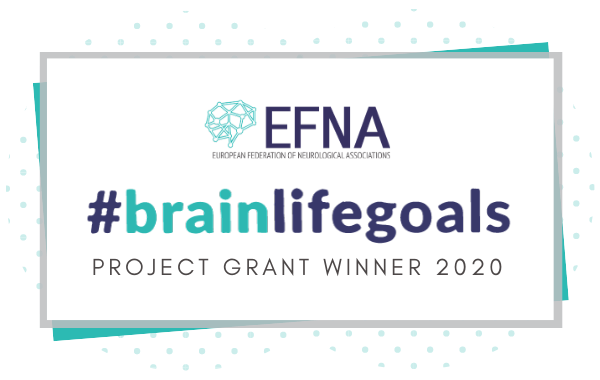Why do we need a special website for ADHD Women & Girls?
It was thought for a long time that Attention Deficit/Hyperactivity Disorder (ADHD) did not present in girls. That was in the days when it was also thought that once a child reached adulthood, ADHD just disappeared. For a number of years now, we know that both of these assumptions are false.

Assessment for – and diagnosis of – ADHD in girls is more complicated than in boys because of its later onset, more subtle clinical manifestations and the gender bias in the more popular ADHD Rating Scales, which emphasize behaviours seen more commonly in boys.
As a result, many girls reached adulthood without any idea why their lives seemed to be more complicated than their peers.
If they are high functioning, having compensated during school and university for their difficulties with their many strengths, it is more difficult for them to realize that they have ADHD. In the case of these women, very often it is when they suffer from Burnout at work that they are forced to analyse why they manage stress so badly. Even then, there are quite a lot of women who are treated for anxiety and depression, eating and/or sleeping disorders, addiction, etc. without their psychiatrists noticing that the underlying cause of their difficulties is ADHD.
About the ADHD Women Project
 In 2020, ADHS Deutschland in partnership with ADHD, ASC & LD Belgium was awarded a grant by the European Federation of Neurological Associations (EFNA), within their #BrainLifeGoals campaign initiative. With the funds received in 2020, we were able to launch a campaign to raise awareness about undiagnosed ADHD in women, focusing at first on Belgium and Germany, and spreading out in 2021 across European countries in their languages.
In 2020, ADHS Deutschland in partnership with ADHD, ASC & LD Belgium was awarded a grant by the European Federation of Neurological Associations (EFNA), within their #BrainLifeGoals campaign initiative. With the funds received in 2020, we were able to launch a campaign to raise awareness about undiagnosed ADHD in women, focusing at first on Belgium and Germany, and spreading out in 2021 across European countries in their languages.
We wish to raise awareness about the hidden disability that is still ravaging the lives of many women throughout Europe today and empower all people living with ADHD, of all genders and diverse cultures.
We began this project by launching social media platforms on Instagram and Facebook and began collecting personal stories from women who wanted to chart their experience of living with undiagnosed ADHD, how they discovered they had ADHD and the difference this knowledge has made to their lives.
These stories did not surprise us because in Germany, Belgium and many other European countries, the ADHD diagnosis ratio for boys vs. girls is 5 to 1, for adults,1:1. One reason for this is that in girls, the expression of their symptoms is more subtle, presenting at a later age and initially, less dramatic than in boys and as the ADHD assessment scales still being used during diagnosis by clinicians are those created originally for boys, ADHD in girls is often a hidden disability, with many girls remaining undiagnosed or misdiagnosed in childhood and adolescence. Thus, they reach adulthood without any knowledge of what is making their lives difficult.
We created this website as a safe place for women to continue exchanging information, sharing their personal stories as well as a place to make information available to them about ADHD in women and related topics. We will continue to add new information as it becomes available.
This is not intended to be a clinical platform, but a fun place for women of all ages to express themselves, learn more about what makes them who they are and how to navigate their limitations while recognizing and appreciating their strengths.
Yet, women with undiagnosed ADHD have greater comorbid risks and a greater severity of outcomes than males . . .
But when problems surface in adulthood, these are often misdiagnosed as depression, eating and/or anxiety disorders as well as other comorbidities (see ppt from Prof. Dr. Sandra Kooij, UKAAN conference 2014).
 Females with ADHD are more likely to have inattentive symptoms, a tendency to internalize symptoms and hormonal involvement, especially during puberty and the menopause. Females are more compelled to conform and live up to society’s expectations when this is extremely difficult for those with undiagnosed ADHD; thus, they develop a sense of inadequacy, guilt, shame, low self-esteem, and tend to have poor self perception. Most women with undiagnosed ADHD experience chronic psychological stress, anxiety and depression, are prone to having unhealthy relationship dynamics and maritial discord.
Females with ADHD are more likely to have inattentive symptoms, a tendency to internalize symptoms and hormonal involvement, especially during puberty and the menopause. Females are more compelled to conform and live up to society’s expectations when this is extremely difficult for those with undiagnosed ADHD; thus, they develop a sense of inadequacy, guilt, shame, low self-esteem, and tend to have poor self perception. Most women with undiagnosed ADHD experience chronic psychological stress, anxiety and depression, are prone to having unhealthy relationship dynamics and maritial discord.
Yet, women with undiagnosed ADHD have greater comorbid risks and a greater severity of outcomes than males, but when problems surface in adulthood, these are often misdiagnosed as depression, eating and/or anxiety disorders as well as other comorbidities (see ppt from Prof. Dr. Sandra Kooij, UKAAN conference 2014).
Females with ADHD are more likely to have inattentive symptoms, a tendency to internalize symptoms and hormonal involvement, especially during puberty and the menopause. Females are more compelled to conform and live up to society’s expectations when this is extremely difficult for those with undiagnosed ADHD; thus, they develop a sense of inadequacy, guilt, shame, low self-esteem, and tend to have poor self perception. Most women with undiagnosed ADHD experience chronic psychological stress, anxiety and depression, are prone to having unhealthy relationship dynamics and maritial discord.
In women with a high IQ and undiagnosed ADHD who seem to have academic and professional success . . .
 … there is a great disparity between their intellectual and social/emotional functioning. To mask symptoms, they compensate to the detriment of their mental health; perfectionism is rife in this group and a reluctance to seek help so that they are less likely to be diagnosed. Burn-out is a common occurrence in high-functioning women with ADHD and sometimes, – but not always – this may lead to their being diagnosed with ADHD and related comorbidities. In too many cases, however, it leads to misdiagnosis of observable behaviours; depression, eating and/or anxiety disorders again being the most typical (Dr. Ellen Littman, Conference Brussels October 2017). Comorbid issues for women with undiagnosed ADHD include anxiety, emotional dysregulation, depression, chronic sleep problems, Bipolar Disorder, substance use dependence, disordered eating, addictive behaviours, and personality disorders.
… there is a great disparity between their intellectual and social/emotional functioning. To mask symptoms, they compensate to the detriment of their mental health; perfectionism is rife in this group and a reluctance to seek help so that they are less likely to be diagnosed. Burn-out is a common occurrence in high-functioning women with ADHD and sometimes, – but not always – this may lead to their being diagnosed with ADHD and related comorbidities. In too many cases, however, it leads to misdiagnosis of observable behaviours; depression, eating and/or anxiety disorders again being the most typical (Dr. Ellen Littman, Conference Brussels October 2017). Comorbid issues for women with undiagnosed ADHD include anxiety, emotional dysregulation, depression, chronic sleep problems, Bipolar Disorder, substance use dependence, disordered eating, addictive behaviours, and personality disorders.
This was our motivation for launching an awareness campaign in a different way than had been done in the past. Women who don’t know that they have ADHD do not look for information regarding the condition in the usual places that this information is provided so even if ADHD patient organizations write and advocate about ADHD in women, they are usually preaching to those ready to be, or already, converted. Our plan is to feed information on social media in unexpected places, especially Instagram, to spread the word about ADHD women in a way that is more accessible to a mainstream audience.
We created this website as a safe place for women to continue exchanging information, sharing their personal stories as well as a place to make information available to them about ADHD in women and related topics. We will continue to add new information as it becomes available.
This is not intended to be a clinical platform, but a fun place for women of all ages to express themselves, learn more about what makes them who they are and how to navigate their limitations while recognizing and appreciating their strengths.
Help raise awareness with us
Please share our website with family, friends, and colleagues to help us raise awareness and support women & girls. Here are some share buttons
Share this page direct on social media
Join us on ADHD Women Social Media
Get involved with ADHD Europe?
Donate via Paypal, credit or debit card?
If you can afford it, donate to ADHD Europe – every euro makes a difference!
If you choose not to donate, please consider to share this page or the blog posts on our website with your family, friends, colleagues andwith your followers and help raise awareness.
Your donation is greatly appreciated and will be used for our communication outreach programs (ADHD Europe Broadcasting, ADHD Advocacy, ADHD Women Project, Awareness activities in Europe events and much more…

ADHD Europe AISBL
Rue Washington 40, Brussels, 1050, Belgium
International not-for-profit association 0810.982.059
RPM ‘Greffe du Tribunal de Commerce de Bruxelles’
www.adhdeurope.eu

